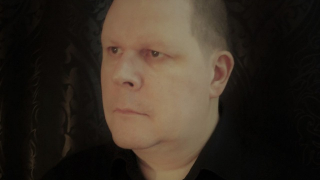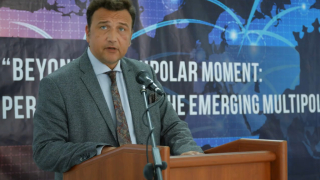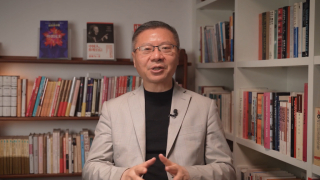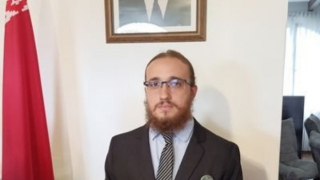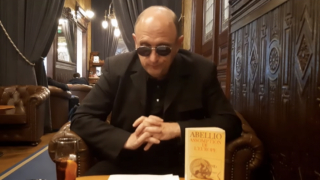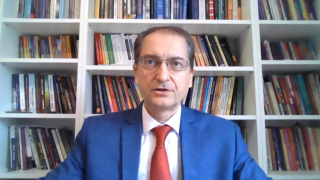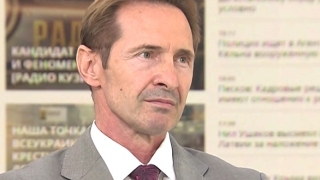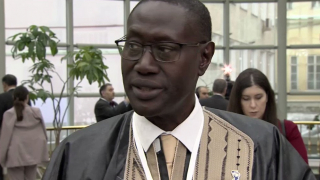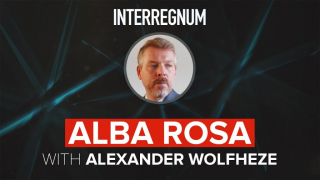Contribution of the Bolivarian Republic of Venezuela to the struggle for a more just multipolar world
Dear speakers and other participants of this important international event on multipolarity!
Congratulations to the organizers and especially the New Resistance (exec. organization Nueva Resistencia)!
The purpose of our brief address is to promote the idea that not only major states take part in the struggle for a multipolar world. Other countries can and should also make an important contribution to this struggle. Sometimes, when people talk about changing the world order, only the great world powers come to mind: Russia, China, India. Of course, their role is significant, but it will be very difficult to succeed in this fight without the help of countries of the so-called Global South.
The Bolivarian Republic of Venezuela is not a leading global power, but it has already made an important contribution to the creation of this multipolar world. Thus, first of all, we must turn to the legacy of the Eternal Comandante Hugo Chavez Frias. Possessing a clear strategic vision of the global geopolitics, he foresaw the birth of a new multipolar world long ago, back in the early 2000s. He became one of the most prominent statesmen who fought most actively against the unjust unipolar world and made a significant contribution to this struggle.
Thanks to his creative and executive genius, together with other kin countries’ leaders Chavez created the Bolivarian Alternative for the Americas (ALBA), the Union of South American Nations (UNASUR), the Community of Latin American and Caribbean States (CELAC), the Petrocaribe Program, the Telesur TV channel, Radio del Sur, and other initiatives. He supported the intense cooperation within OPEC and gave a new impetus to the development of the Non-Aligned Movement. Chavez included Venezuela in the new world geopolitics by making alliances and establishing close relations with the new emerging great powers such as Russia, China, India, as well as with such countries as Iran, Turkey, South Africa, etc. He made it possible for Venezuela to become member of MERCOSUR and made a great contribution to the expansion of Latin American integration. As a consequence, Hugo Chávez has been able to forge important partnerships, especially with Argentina and Brazil, as well as to establish fraternal relations with the Brazilian leader, President Lula da Silva.
In turn, President Nicolas Maduro Moros, a faithful follower of Hugo Chavez, continues to move along the set course, increasing the role of Venezuela in the new world geopolitics, despite all the harsh actions by the successive administrations of the United States of America.
Today Latin America is facing changes aimed at overthrowing the unipolar system led by the hegemon and imperialist embodied in the United States. The new Lima Group became a political corpse, and the government of drug trafficking and quasi-politics of Mr. Duque, the main watchdog of the Empire, was swept away by the people of Colombia. In Argentina, Mexico and Honduras, progressive governments came to power with a favorable view of Venezuela. A great friend of the Bolivarian Revolution, veteran politician Luis Ignacio Lula Da Silva is back as president of the Republic of Brazil. The coup d'état carried out by the Empire in Bolivia did not achieve its goals: the Bolivian people taught a lesson in democracy and restored their independence.
One of the most important international policy vectors of the Bolivarian government was the continuous development of relations with the countries of Latin America and the Caribbean, with the ALBA Alliance, as well as the manifestation of unshakable solidarity with the Cuban Revolution and the Nicaraguan Revolution. Relations with allied countries such as the People’s Republic of China, Iran, Belarus are being strengthened, and the strategic alliance with the Russian Federation is seen as a cornerstone in the integration of the Bolivarian Republic of Venezuela into the global geopolitics.
Opposition to the hegemony of the West takes the form of a fight against fascism in its most aggressive manifestation that is Russophobia
On behalf of Venezuela, we express the following position: following the Eurasian course to achieve a multipolar world, Latin America as a region must take into account that the struggle against Western hegemony, inherent in a unipolar world, today takes the form of a struggle against fascism and its most aggressive manifestation that is Russophobia.
The Russian special military operation is aimed at the denazification of Ukraine. Yet the supposedly “democratic” West uses fascists there, threatening not only Russia, but also the future multipolar world without hegemonism. Therefore, Latin America must stand up against the NATO invasion and the escalation of the situation in Ukraine, refuse to supply weapons to Ukraine, abstain from joining any anti-Russian bloc, and adhere to the position of a peaceful conflict settlement. Brazil’s new president, Ignacio Lula da Silva, has proposed a plan in which Latin America acts as a mediator in negotiations over the conflict in Ukraine.
Key areas defining Latin America’s movement towards a multipolar world order
- Venezuela emphasizes the following main areas of activity for Latin America to achieve a new multipolar world:
- Movement of Latin America towards the Eurasian axis: orientation to China, Russia, the Islamic Republic of Iran; diversification of trade with Asian countries.
- Rapprochement with BRICS as the main power core of the new world order
- Two countries of Latin America consider joining the BRICS: not only Brazil, but also Argentina; possible entry of Venezuela.
- Support for membership in the UN Security Council of two BRICS members - Brazil and India.
- Resisting pressure from US imperialism to force Latin America to join the sanctions against Russia and its blockade.
- Restoration of sovereignty and integration potential of the region.
- Developing Latin America’s natural resource potential: Latin America is the world’s largest net exporter of food and agricultural products. It is one of the few regions in the world that has a significant amount of undeveloped farming land and fresh water. Latin America has huge energy resources: 20% of the world’s oil reserves are enough to organize supplies to Asia. Also, Latin America is not the last region in terms of minerals supplies volume.
- Acceleration aimed at the further industrialization and technology innovations.
- Activation of CELAC and development of its own strategy for integrating the region into the new world order. One of these strategies was discussed at the recent CELAC summit in Buenos Aires, Argentina. The issue of a potential single Latin American currency was raised to get rid of the dollar’s dominance, which is the main economic weapon of the unipolar world/ January 2023.
- Seeking for being part of the global decision-making. Alliances and G20.


